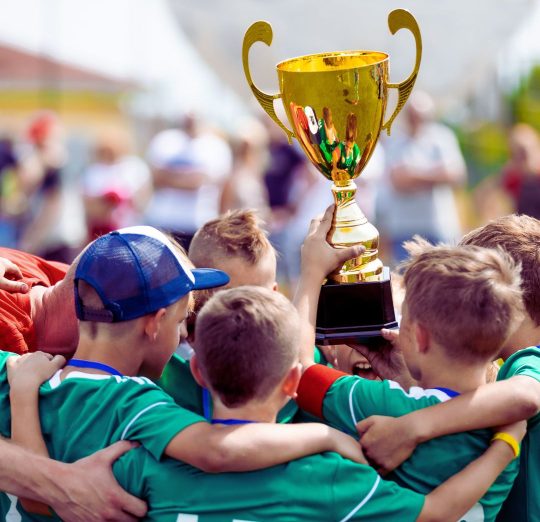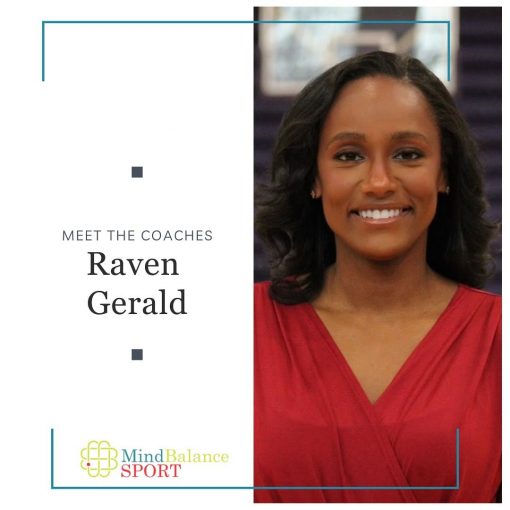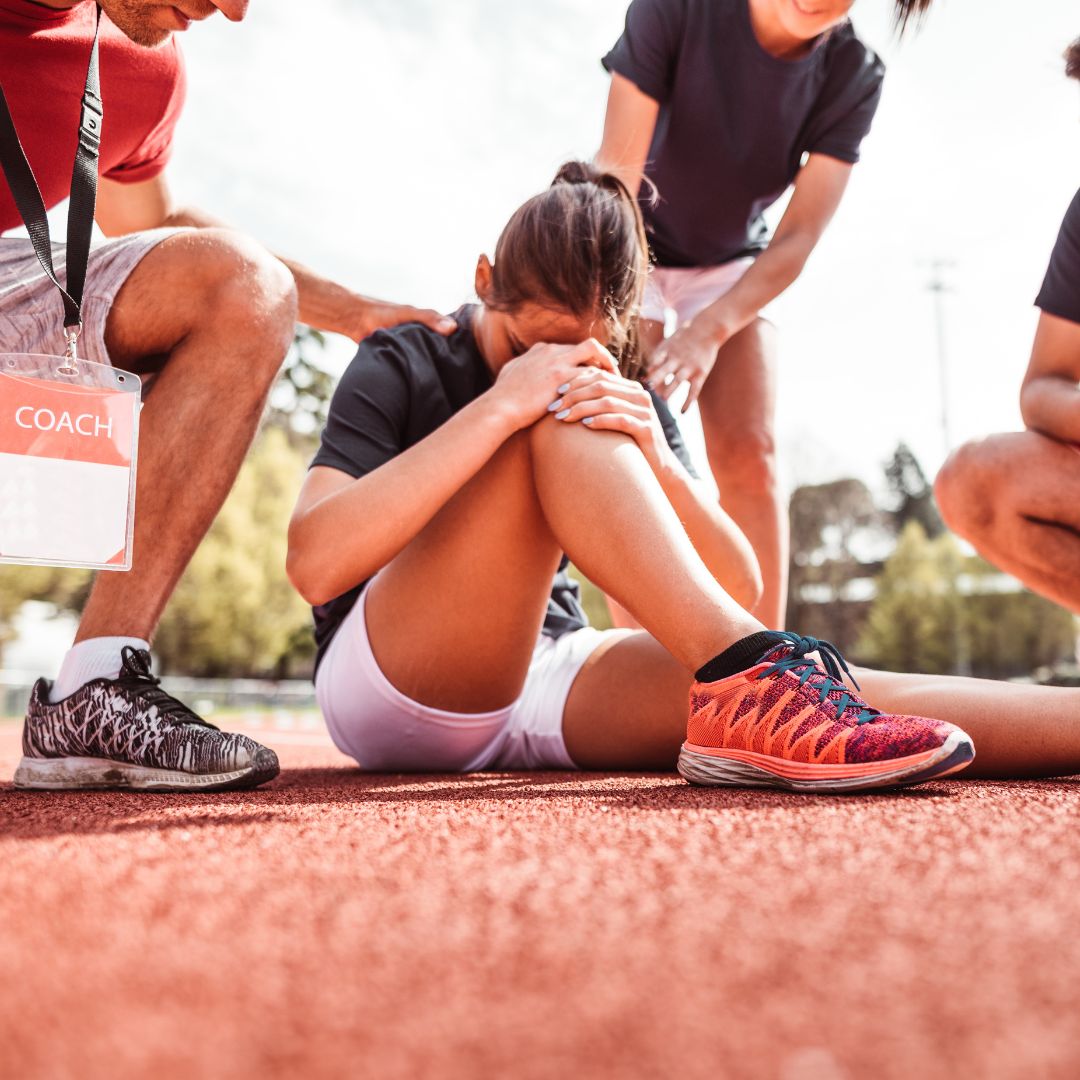Sports Psychologist in Wheaton, MD
You want to work on your mental game, but how do you train your brain?
At MindBalanceSPORT, We Train The Other Half Of The Athlete.
You want to work on your mental game, but how do you train your brain?
Mental training does not get much media attention, but at MindBalanceSPORT we know it is a game changer. The mental skills you will learn at MindBalanceSPORT are generalizable in the classroom, in sport and in life!
We know that mental skills can be successfully taught, even at an early age.

Our Services
Meet the Team





testimonials
Athlete Stories: Real Comebacks, Real Results

Emma, a high school basketball player, tore her ACL in the middle of her junior season. After surgery, she struggled with self-doubt and fear every time she stepped back on the court. Through sport psychology training, she learned visualization techniques and confidence-building exercises that helped her regain trust in her knee. When she returned for her senior season, she didn’t just play—she led her team to the playoffs.

Carlos, a soccer player, suffered a stress fracture in his foot and had to miss half of his season. Sitting out was mentally tougher than the pain itself. We worked on mental engagement strategies to keep him sharp—studying game film, setting small rehab goals, and using mental imagery to stay ready. When he was finally cleared, his confidence never wavered.

Jordan, a track athlete, strained her hamstring before a major competition. She feared losing speed and falling behind competitors. Instead of focusing on what she couldn’t do, we redirected her energy toward mental preparation, using self-talk and goal setting to keep her confidence strong. When she returned, she set a new personal record.
EXCELLENTTrustindex verifies that the original source of the review is Google. It was a great help to my 14-year-old competitive volleyball player daughter. Raven was great to understand and connect with her from start to end. We will continue with our sessions as needed.Trustindex verifies that the original source of the review is Google. Great results! I’ve loved working with Paula. Our sessions have greatly improved both the physical and mental aspects of my tennis game. I’m playing better and having more fun! Highly recommend!Trustindex verifies that the original source of the review is Google. Our family had a wonderful experience with Paula Castro. We needed some additional confidence in a particular area/sport and Paula helped get us there. We know who to turn to if we need help again. She’s been a Blessing. Thank you, Paula!Trustindex verifies that the original source of the review is Google. I highly recommend MindBalanceSPORT. Our son works with John Howard. John is very caring, positive, and effective at working with teenagers. John is an adept listener and created an individualized plan tailored to our son’s personality. After just a few sessions with John, we noticed a significant improvement in our son’s motivation and mental approach to sports and life in general. Our son looks forward to meeting with John and tells us that he benefits immensely from their connection.Trustindex verifies that the original source of the review is Google. Paula Castro is an outstanding professional on the field. She has helped my daughter improve her confidence, preparation, and thanks to these session she feels more prepared and motivated. Paula takes the time also to share (what she can) and align with us as parents to be on the same page. Strongly recommended!Trustindex verifies that the original source of the review is Google. MineBalanceSPORT has quickly become the area's expert in sports psychology. Their reputation is well deserved given their incredibly thoughtful, scientifically based approaches to treating performance-related conditions, and I have only heard glowing, positive feedback from those who have engaged in their program. I will also add that Drs. Jones and Chirby presented to us (our group comprises of 15+ doctors and masters level clinicans) about their program and impressed us all with their level of expertise and passion for this field. I give them my highest recommendation.Trustindex verifies that the original source of the review is Google. Dr. Jones was beyond helpful to me throughout our time together. If you are an athlete and you need advice or assistance this is the place to come to. She completely changed my outlook and mindset in a time when I needed her most. I look forward to staying in touch with her and am forever thankful for her expertise.Trustindex verifies that the original source of the review is Google. Paula has been a huge help with my daughter Morgan coming off her injury. It’s been 18 months since she’s played basketball and she’s thriving because I know Paula is guiding her the right direction. As a mother, I’m extremely gratefulTrustindex verifies that the original source of the review is Google. If you are looking for Amazing Psychologists who can help support you in your sports performance, you need to call MindBalanceSPORT! Dr. Chirby and her colleagues are a wealth of knowledge, they have so many helpful techniques for mind balance, and they have so much compassion for the communities that they serve! Highly recommend!!!
Recovery
While Everyone Has A Physical Ceiling, There Is No Mental Ceiling.
Strategies for Preventing Athlete Burnout Through Sports Counselling in Wheaton, MD
Strategies for Preventing Athlete Burnout Through Sports Counselling in Wheaton, MD
Burnout is a common challenge faced by athletes across all levels, from amateurs to professionals. The physical and mental demands of sports, coupled with the pressure to perform, can lead to exhaustion, reduced motivation, and even the desire to quit. By understanding key strategies to prevent and address burnout, athletes can maintain their passion for their sport while achieving long-term success.
Recognizing Signs of Burnout
Burnout often manifests subtly before becoming more evident. Early recognition is critical in addressing it effectively. Common signs include:
– Physical Symptoms: Persistent fatigue, frequent injuries, or chronic pain that doesn’t improve with rest.
– Emotional Symptoms: A loss of enjoyment in sports activities, increased irritability, or feelings of anxiety or depression.
– Performance Decline: Difficulty concentrating during training or competition, along with noticeable drops in performance levels.
Athletes and coaches should regularly monitor these indicators to intervene before burnout worsens.
Strategies for Preventing Burnout
- Avoid overtraining by incorporating adequate rest days into the training schedule.
- Allocate time for non-sport-related hobbies and activities that bring joy outside athletics.
- Establish achievable short-term milestones alongside long-term objectives to avoid becoming overwhelmed by constant pressure.
- Focus on process-oriented goals (e.g., improving technique) rather than outcome-driven goals (winning every match).
- Practice mindfulness techniques such as meditation or deep-breathing exercises to manage stress effectively.
- Engage with support networks—family, friends, or teammates—to maintain emotional well-being.
- Healthy Sleep Habits
Quality sleep is crucial for both physical recovery and mental clarity. Athletes should aim for 7–9 hours per night while avoiding stimulants like caffeine late in the day. - Proper Nutrition
A balanced diet rich in essential nutrients supports energy levels and aids recovery from physical exertion.
Addressing Burnout When It Occurs
- Seek Professional Support: Sports psychologists are highly effective at helping athletes identify root causes of burnout and develop coping mechanisms tailored to their needs.
- Adjust Training Loads: Scale back intensity levels temporarily until physical and mental recovery occurs.
- Reframe Perspectives on Performance: Shift away from perfectionism by emphasizing effort over results.
- Revisit Passion for Sport: Reflect on why they started playing initially to reconnect with intrinsic motivations.
| Prevention Tip | Key Benefit | Example Practice |
| Adequate Rest & Recovery | Reduces fatigue; enhances performance | Schedule weekly rest days |
| Mindfulness Techniques | Improves focus; lowers anxiety | 10 minutes daily meditation |
| Goal Setting | Sustains motivation through small successes | Break down training into weekly goals |
By adopting these strategies consistently over time, athletes at any level can safeguard themselves against burnout while continuing their journey toward athletic excellence.
How Sports Psychologists in Wheaton, MD Address Burnout and Help Athletes Overcome It
Burnout is a pervasive issue in sports, affecting athletes across all levels — from youth athletes to seasoned professionals. Identifying the psychological predictors of burnout can help athletes, coaches, and sports psychologists implement effective strategies to minimize its effects and sustain long-term performance.
Understanding Performance Psychology in Wheaton, MD to Prevent Athlete Burnout
- An excessive desire to meet unrealistic standards often leads athletes to overwork themselves, increasing mental fatigue.
- Fear of failure can amplify stress and reduce intrinsic motivation.
- When athletes feel they lack control over their training or career decisions, they may experience higher levels of frustration and disengagement.
- Persistent stress from competition, expectations, or external pressures can lead to exhaustion over time.
- Inadequate recovery periods further exacerbate the issue.
- Negative self-perceptions or frequent self-criticism can diminish an athlete’s overall mental well-being.
- High emotional demands from sport participation can lead to feelings of being drained and losing passion for the game.
Effective Strategies for Sport Performance Training in Wheaton, MD
1. Foster a Growth Mindset
- Emphasize effort over results.
- Encourage learning from setbacks rather than fearing failure.
- Celebrate small achievements along the way.
2. Prioritize Recovery
- Integrate regular physical rest days into training schedules.
- Encourage mental recovery practices like mindfulness or meditation.
- Promote healthy sleep habits to allow full physical and cognitive rejuvenation.
3. Enhance Autonomy
- Involve athletes in goal-setting processes.
- Allow them to provide input on their training plans.
- Offer choices when possible to ensure they feel empowered.
4. Strengthen Coping Skills
Sports psychologists often teach resilience-building techniques such as: – Cognitive reframing: Changing negative thought patterns into constructive ones. – Stress management techniques: Breathing exercises or visualization strategies before competitions.
5. Build Strong Support Systems
A network comprising family, friends, coaches, and teammates fosters emotional stability: | Role | Support Provided | |——————|———————————————————————————-| | Coaches | Positive reinforcement; balanced workloads | | Teammates | Encouragement; creating a sense of belonging | | Family | Emotional backing outside sporting environments |
Boost Your Performance with a Sports Mental Coach in Wheaton, MD
Educating young athletes about burnout is crucial for prevention: 1. Teach them how to recognize early warning signs such as irritability or loss of motivation. 2. Provide workshops on self-care practices tailored for high-performance individuals. 3. Promote open communication channels between athletes and their teams.
Understanding the psychological predictors behind burnout enables better preparation and personalized intervention methods for preventing it altogether — helping both current and future generations of athletes thrive without being overwhelmed by mental strain or fatigue.
How Sports Psychiatry in Wheaton, MD Can Improve Athlete Mental Well-Being
1. Foster Open Communication
- Regular Check-Ins: Schedule one-on-one or group discussions where athletes can share their feelings without fear of judgment.
- Active Listening: Demonstrate genuine interest in what the athlete is saying by maintaining eye contact, paraphrasing, and validating emotions.
- Anonymous Feedback Channels: Provide platforms where athletes can voice concerns confidentially.
This approach reduces stigma around mental health issues and ensures early intervention when problems arise.
2. Incorporate Mental Skills Training
| Skill | Benefits |
| Goal-Setting | Helps athletes focus on achievable milestones to stay motivated |
| Visualization | Enhances confidence by mentally rehearsing successful performances |
| Mindfulness | Encourages present-moment awareness, reducing stress and anxiety |
| Stress Management | Provides tools for managing pressure during competition |
By incorporating these techniques into daily routines, athletes are better equipped to handle the psychological demands of their sport.
3. Promote Work-Life Balance
- Allowing time off for recovery—both physical and mental
- Encouraging hobbies or interests outside of sports
- Setting realistic expectations regarding time commitment
A balanced lifestyle helps athletes sustain long-term passion for their sport while reducing the risk of fatigue.
4. Recognize Signs of Distress
- Sudden changes in mood or behavior
- Uncharacteristic drop in performance
- Withdrawal from teammates or social activities
Sports psychologists can provide additional support by conducting thorough assessments when these signs appear.
5. Facilitate Access to Professional Help
- Develop partnerships with licensed sports psychologists or therapists.
- Encourage athletes to view seeking professional help as a strength rather than a weakness.
- Normalize discussions about therapy during team meetings.
Proactive measures ensure that struggling individuals receive the care they need without delay.
The Collaborative Effort Between Coaches & Psychologists
The partnership between coaches and sports psychologists is pivotal in achieving holistic athlete development. While coaches provide day-to-day mentorship on skill improvement, sports psychologists address deeper emotional and psychological needs that directly impact performance outcomes.
By working together effectively, they not only enhance athletic achievement but also cultivate healthier, happier individuals who thrive beyond the confines of competition arenas.
The Importance of Developing an Individualized Mental Performance Plan for Athletes
In the competitive world of sports, physical training alone is no longer sufficient to achieve peak performance. Athletes must also prioritize their mental preparation to gain a competitive edge. One effective approach is through the creation of an individualized mental performance plan (IMPP). This tailored strategy helps athletes address their unique challenges, optimize focus, and foster resilience, ultimately enhancing both performance and well-being.
What is an Individualized Mental Performance Plan (IMPP)?
An IMPP is a customized strategy developed by athletes in collaboration with sports psychologists or mental skills coaches. The plan focuses on addressing an athlete’s specific mental needs by incorporating tools and techniques that align with their goals, personality traits, and competitive demands. Rather than using a one-size-fits-all approach, this personalized blueprint ensures that the athlete’s psychological preparation matches their unique athletic journey.
Key Components of an IMPP
- Long-term goals (e.g., winning championships).
- Short-term objectives (e.g., improving reaction time or staying composed during high-pressure situations).
- Visualization practices: Rehearsing scenarios mentally to improve confidence and anticipation.
- Focus techniques: Strategies to maintain concentration, especially during distractions or setbacks.
- Breathing exercises to control arousal levels before competitions.
- Progressive muscle relaxation for physical and mental calmness.
- Identifying emotional triggers that hinder performance.
- Reflective exercises such as journaling for deeper insights into thought patterns.
- Pre-performance rituals tailored to enhance consistency.
- Recovery strategies for promoting balance between work and rest.
Benefits of a Personalized Approach
- Enhanced Focus and Motivation: Clear goals paired with actionable steps keep athletes engaged in training and competition.
- Improved Resilience: Tailored strategies help them bounce back faster from failure or injury.
- Reduced Stress: Custom relaxation techniques make it easier to manage pressure effectively.
- Sustained Growth: Personalized feedback ensures continuous progress by targeting specific areas for improvement.
Example Table: Comparing General vs Individualized Approaches
| Aspect | General Approach | Individualized Approach |
| Goal Setting | Generic team goals | Personal short/long-term aims |
| Stress Management | Basic relaxation tips | Tailored breathing exercises |
| Focus Techniques | Broad suggestions | Sport-specific drills |
| Recovery Strategies | Standard procedures | Customized recovery plans |
Implementing an Effective Plan
- Collaborate with professionals like sports psychologists who can assess your needs.
- Regularly review the plan’s effectiveness through self-assessment or coach feedback.
- Adjust strategies as needed based on new challenges or evolving athletic goals.
By taking these steps, athletes can ensure that their mental preparation evolves alongside their physical abilities—offering a comprehensive foundation for long-term success in their sport.
Exploring the Crucial Role of Sports Psychologists in Enhancing Athletic Performance
Sports psychologists play an essential role in improving athletic performance, helping athletes achieve their full potential not just physically, but mentally and emotionally as well. Their expertise lies at the intersection of psychology and sports, offering tailored strategies to optimize performance, build resilience, and ensure long-term success. Here’s an in-depth look at how sports psychologists contribute to athletic excellence.
Key Areas of Contribution by Sports Psychologists
- Mental Skills Training
Sports psychologists equip athletes with critical mental tools that enhance focus and performance under pressure. These include: - Visualization Techniques: Developing mental imagery to rehearse success before competition.
- Goal Setting: Setting actionable, measurable goals for short-term and long-term progress.
- Concentration Strategies: Training athletes to maintain focus despite distractions during high-stakes moments.
- Stress and Anxiety Management
Performing under pressure is a hallmark of athletics. Sports psychologists teach methods to regulate competitive stress levels, such as: - Breathing exercises for relaxation.
- Cognitive reframing to counter negative self-talk.
- Pre-competition routines designed to reduce anxiety.
- Rehabilitation Support During Injury Recovery
Injuries are inevitable in sports, but the mental toll they take can be significant. Sports psychologists help athletes: - Maintain motivation during recovery periods.
- Address fears or doubts about returning to competition.
- Develop coping mechanisms for pain management or frustration.
- Enhancing Team Dynamics
In team-based athletics, relationships among teammates can directly influence performance outcomes. A sports psychologist may work on aspects such as: - Building trust among team members.
- Conflict resolution techniques.
- Improving communication within teams for better collaboration.
The Science Behind Performance Optimization
| Psychological Factors | Impact on Athletic Performance | Intervention Strategies |
| Focus & Attention | Enhanced decision-making during competition | Mindfulness training; task-oriented thinking |
| Confidence | Improved self-belief leading to higher achievement levels | Positive affirmation practices; addressing imposter syndrome |
| Emotional Regulation | Better handling of setbacks and failures | Journaling emotional triggers; relaxation techniques |
Collaboration Across Stakeholders
Sports psychologists often work alongside coaches, trainers, and even families of athletes to develop comprehensive support systems. This collaboration ensures that mental training aligns seamlessly with physical preparation and personal circumstances.
Key collaborative roles include: – Advising coaches on effective motivational techniques. – Teaching parents how their support can positively influence youth athletes’ mental health. – Coordinating with physiotherapists to address psychological barriers during rehabilitation.
Sports psychologists are more than just counselors—they are integral partners in an athlete’s journey toward sustained excellence both on and off the field. By addressing mental barriers and optimizing cognitive performance strategies, they empower athletes to thrive in competitive environments while fostering personal growth beyond the sport itself.
How Sports Psychology Helps Athletes Build Resilience and Handle Competitive Pressure
Competitive pressure is an inherent part of sports. While physical capabilities are often the focus, psychological resilience plays an equally pivotal role in determining athletic success. Sports psychology provides athletes with essential tools to improve their mental agility, manage stress, and ultimately thrive under challenging conditions. Below, we explore the ways in which sports psychology aids in building resilience and handling competitive pressure effectively.
Building Resilience: The Foundation of Mental Toughness
- Cognitive Reframing: Encouraging athletes to view setbacks as opportunities for learning rather than failures.
- Goal Setting: Setting short-term, realistic objectives that provide a sense of accomplishment and maintain motivation.
- Emotional Regulation Techniques: Teaching methods like mindfulness or controlled breathing to manage frustration or anxiety.
- Optimism Training: Fostering a positive outlook by focusing on past successes and future possibilities.
These techniques collectively enhance an athlete’s ability to recover quickly after poor performances or unexpected challenges.
Managing Competitive Pressure Effectively
Pressure during competitions can lead to anxiety, performance decline, or even burnout if not managed effectively. Sports psychologists implement specific tools and techniques to help athletes feel grounded during high-stakes situations.
- Pre-performance Routines
Establishing rituals before games or events can help foster consistency and calmness. Examples include: - Visualization exercises (picturing successful outcomes).
- Warm-up habits that maintain focus on controllable factors rather than external pressures.
- Self-talk Strategies
Positive self-talk helps counteract negative thinking patterns. For instance: - Replace “I might fail” with “I am prepared for this challenge.”
- Use affirmations such as “I’ve trained hard, and I trust my skills.”
- Focus Training
Developing the ability to concentrate on the present moment prevents distractions from affecting performance: - Mindfulness exercises can heighten awareness without judgment.
- Task-oriented thinking directs energy toward actionable steps rather than uncontrollable results (e.g., focusing on form over winning).
- Stress Management Practices
Methods like progressive muscle relaxation (PMR) or meditation aid in reducing pre-game jitters by calming both body and mind.
The Long-term Benefits of Psychological Tools
By integrating these strategies into their training regimen, athletes can experience lasting benefits such as improved confidence, greater adaptability under changing circumstances, and enhanced decision-making abilities during competition. Consistent application equips them not only for success in their sport but also for broader life challenges where resilience and composure are critical.
| Key Benefit | Description |
| Confidence Boost | Reinforced belief in one’s preparation increases self-assurance under pressure |
| Emotional Mastery | Better control over anxiety or fear allows for clearer focus |
| Decision-Making Skills | Improved clarity helps athletes make effective choices even under tight time constraints |
Sports psychologists serve as invaluable resources in helping individuals build these capabilities, ensuring they remain mentally strong regardless of competitive intensity levels they face throughout their careers.








